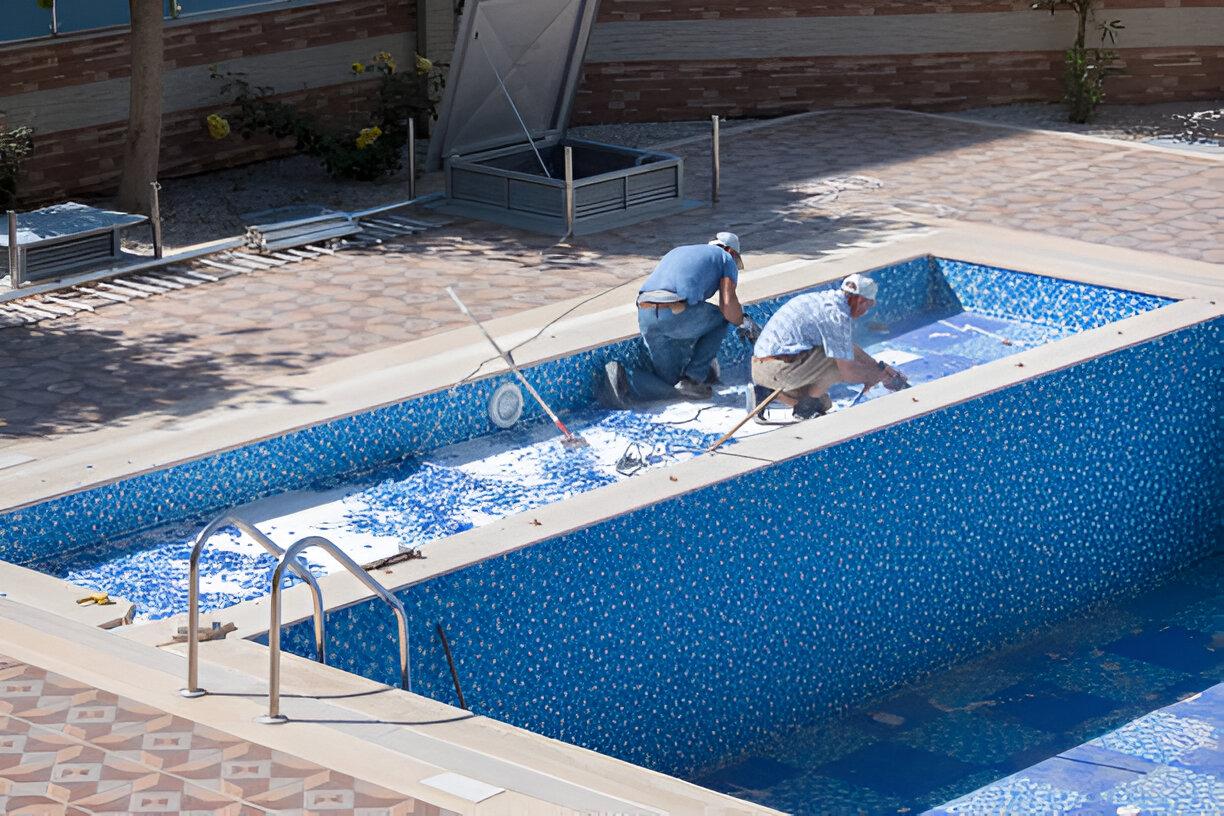Swimming pools are a popular addition to many properties in Dubai, from private villas to commercial spaces. With the region’s hot climate and a strong emphasis on luxury living, constructing a swimming pool is a common choice for homeowners and developers alike. However, there are important aspects to consider before starting construction.
This guide explores the key things you should know about Swimming pool Construction Dubai, including legal requirements, construction stages, material choices, and estimated costs.
Legal and Regulatory Requirements
Permits and Approvals
In Dubai, swimming pool construction requires permission from local authorities. Before starting, you must get approvals from Dubai Municipality and sometimes additional permits from relevant authorities depending on your property type.
Safety Regulations
There are strict safety standards for both residential and commercial pools. These include fencing, anti-slip surfaces, childproof gates, and pool alarms. Adhering to these rules ensures safety and avoids penalties.
Environmental Considerations
Dubai's regulations also emphasize water conservation and responsible chemical use. Filtration systems must be efficient, and construction materials should meet sustainability standards when possible.
Types of Swimming Pools
Residential Pools
These pools are commonly found in villas and private homes. They range from small plunge pools to large lap pools. Design can be customized based on space, shape preferences, and usage needs.
Commercial Pools
Found in hotels, resorts, fitness centers, and residential towers, commercial pools must comply with more rigorous safety, hygiene, and maintenance regulations. These projects usually involve larger budgets and timelines.
Rooftop and Indoor Pools
With limited space in urban areas, rooftop and indoor pools are becoming more popular. Special structural assessments are required before planning these kinds of pools.
Construction Process Overview
Site Inspection and Design
Every pool construction starts with a thorough site inspection. Designers evaluate space, soil quality, and access points before preparing drawings and layout plans.
Excavation and Framing
Once approvals are in place, the land is excavated according to the pool shape and depth. Then, steel reinforcement bars and framing structures are installed to form the base and walls.
Plumbing and Electrical Work
Pipes for drainage, filtration, and water inlets are laid out next. Electrical wiring for lighting, pumps, and heaters is also completed during this stage.
Shotcrete or Gunite Application
The pool shell is created by spraying concrete or gunite, which is then smoothed and left to cure. This creates a durable base for tiling or plastering.
Tiling and Finishing
Tiles or finishes like plaster or pebbles are applied once the concrete has set. This stage also includes coping stones and any water features like waterfalls or fountains.
Testing and Handover
Before the pool is handed over, it is tested for leaks, filtration performance, and electrical safety. Once passed, the final handover and maintenance schedule are provided.
Material Choices for Swimming Pools
Concrete
Concrete is the most flexible and long-lasting material for custom pools. It supports various shapes, sizes, and finishes. However, it may take longer to build and cost more than other options.
Fiberglass
Fiberglass pools are factory-molded and then installed on-site. They are quicker to set up and have a smooth finish, though design options are more limited.
Vinyl Liner
Vinyl is budget-friendly and easy to replace. However, it may not withstand the harsh Dubai sun and may need frequent maintenance compared to other materials.
Common Features and Add-ons
Heating and Cooling Systems
Given the intense heat in Dubai, many pool owners opt for cooling systems. Heating systems are also used during cooler months to maintain comfortable temperatures.
Lighting and Automation
Underwater lights, LED accents, and smart controls enhance the pool's aesthetic and usability. Automation allows for managing filtration, cleaning, and heating remotely.
Water Features
Fountains, waterfalls, and jets add elegance and a luxurious feel to the swimming pool. These are often included in modern pool designs.
Estimated Costs and Timelines
Cost Factors
The cost of swimming pool construction in Dubai depends on size, design, materials, location, and additional features. On average:
- Small residential pool: AED 60,000 – AED 100,000
- Medium-sized pool: AED 100,000 – AED 180,000
- Luxury or custom pool: AED 200,000 and above
Additional expenses include maintenance contracts, water features, and landscaping.
Construction Timeline
A basic residential pool may take 6 to 10 weeks to complete. Custom or commercial pools can take several months, especially if rooftop or indoor construction is involved.
Maintenance and Lifespan
Regular Maintenance
Swimming pools need regular cleaning, water testing, and equipment maintenance. Many pool owners opt for monthly service contracts to ensure water quality and system functionality.
Lifespan
With proper maintenance, concrete pools can last over 30 years. Fiberglass and vinyl pools have shorter lifespans but are easier to refurbish.
Challenges of Pool Construction in Dubai
Soil and Ground Conditions
Dubai has sandy soil, which requires special treatment for stability. Pool bases must be reinforced to prevent shifting and cracking.
Temperature and UV Exposure
The extreme sun exposure can damage surfaces and pool equipment over time. UV-resistant materials and shaded areas can help extend pool life.
Water Conservation
Due to limited freshwater resources, pool owners are encouraged to install water-saving systems and cover pools to reduce evaporation.
Conclusion
Building a swimming pool in Dubai offers comfort, luxury, and added property value. However, understanding the legal requirements, construction process, material options, and ongoing responsibilities is crucial. With the right planning and professional guidance, you can enjoy a high-quality swimming pool that fits your lifestyle and property.

